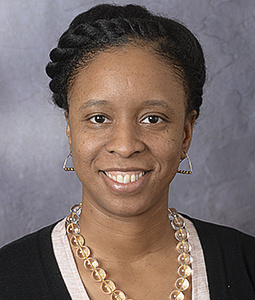Department of Biological Sciences
- SC.edu
- Study
- Colleges and Schools
- Arts and Sciences
- Department of Biological Sciences
- Our People
- General Directory
- Alissa Richmond Armstrong
General Directory
Alissa Richmond Armstrong
| Title: | Associate Professor Research Concentration - Stem Cell & Developmental Biology; Biology of Cellular Stress |
| Department: | Biological Sciences McCausland College of Arts and Sciences |
| Email: | ararmstrong@sc.edu |
| Phone: | 803-777-9621 |
| Office: | PSC, Room 619 |
| Resources: | Armstrong Lab Website |

Research
The Armstrong laboratory's overarching goal is to understand how communication with adipocytes coordinates the response of adult stem cell populations and their differentiating daughters to changes in an organism’s nutritional input.
Adult stem cells play a key role in tissue homeostasis and damage repair. While many stem cell-supported tissues are affected by changes in diet, age, stress and hormone levels, it is unclear how adult stem cells cooperate with other tissues to ensure appropriate cellular responses to whole-body physiological state. Given the current obesity epidemic and the association between obesity and increased risk for several disease states including type 2 diabetes and cancer, the Armstrong lab is interested in understanding how nutritional sensing by adipocytes affects adult stem cells and their progeny. In addition to the incredible genetic tractability of Drosophila melanogaster (the fruit fly), several features make this organism a powerful model system for addressing how multiple organs coordinate the response of stem cells to nutritional status:
1) The dramatic ovarian response to diet, altered egg production, is mediated largely by effects on ovarian stem cells and their progeny.
2) Well-characterized adult stem cell populations support multiple organs, including the ovary, gut and testis.
3) Drosophila use organs analogous to those employed by mammals to regulate physiology.
4) Many nutrient sensing pathways and components, like insulin and TOR-mediated signaling, are highly conserved between mammals and fruit flies.
5) Well-established genetic tools allow for tissue and temporal specific manipulations.
My postdoctoral studies have shown that distinct nutrient sensing pathways function within adipocytes to regulate various processes along the stem cell lineage in the ovary. Using Drosophila melanogaster, the Armstrong lab takes advantage of genetic, molecular and cell biological tools to understand the mechanisms that underlie the control of adult stem cells by remote nutrient sensing.